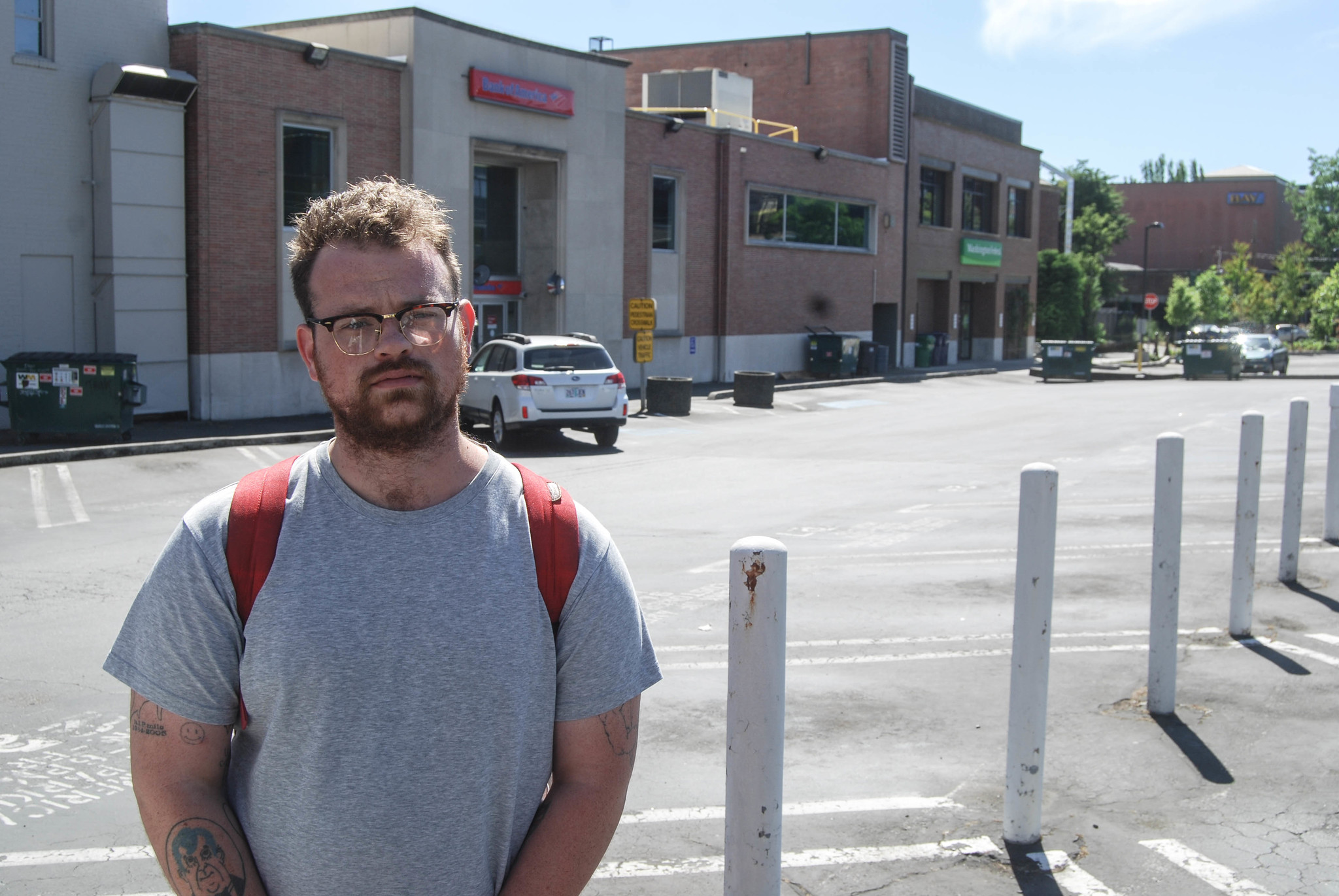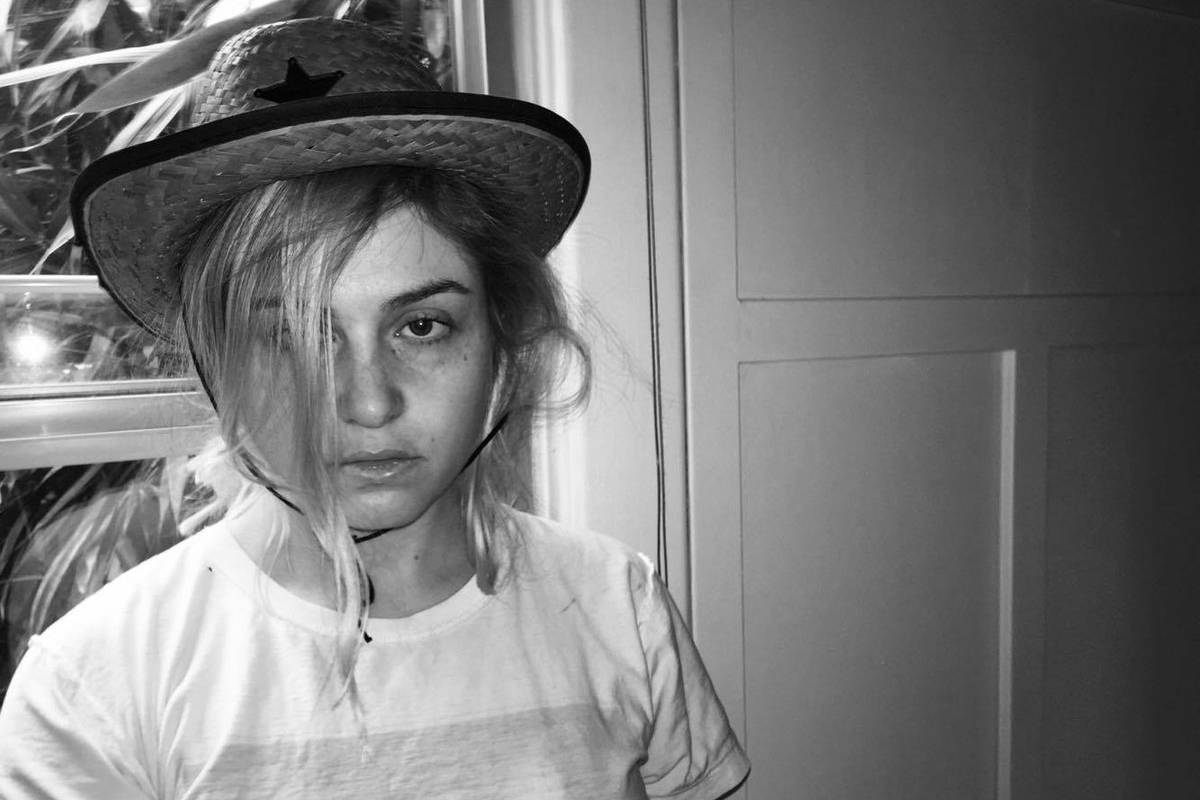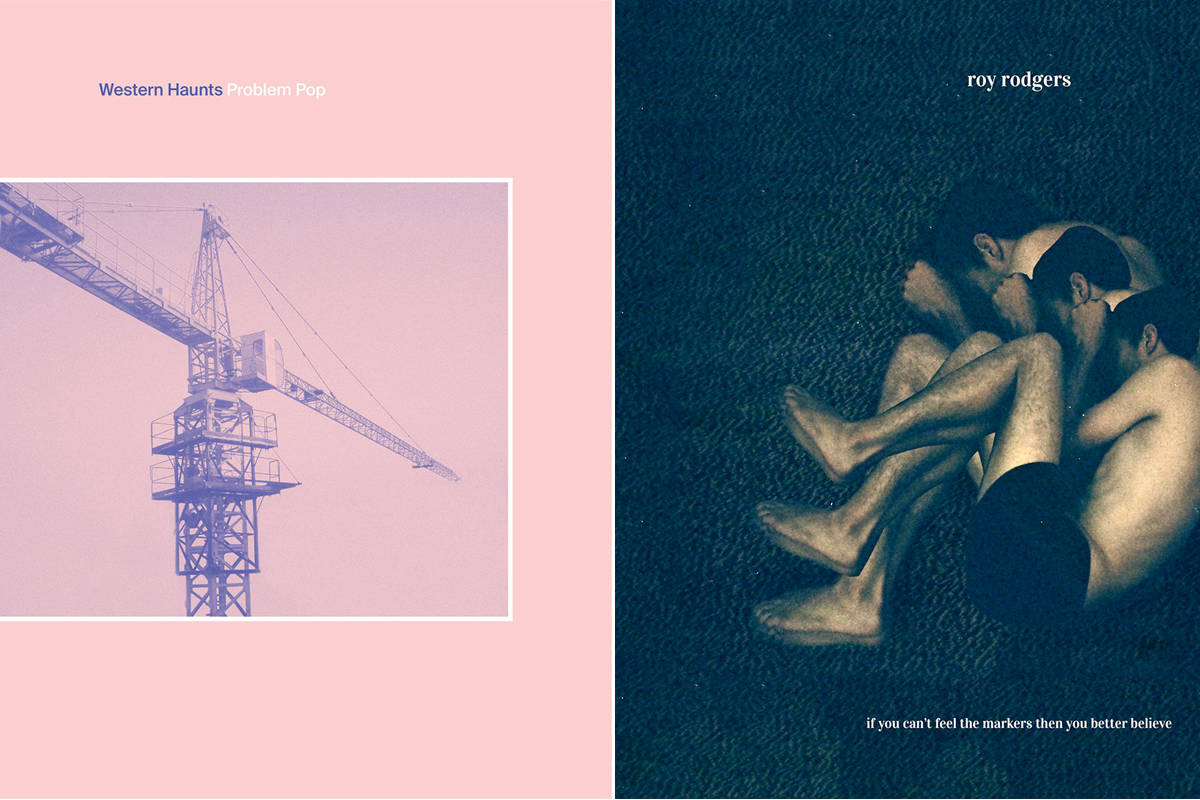On the last day of a recent visit to the suburbs of Phoenix, Ariz., songwriter Stephen Steinbrink drove around the abandoned buildings that fill that landscape with a camera at his side. He wanted to capture his hometown’s desolation before heading back to his adopted home in the Northwest. The empty strip malls and boarded-up grocery stores have become something “stark and beautiful but pretty freaky,” he says. He placed a kick drum in front of a recycling plant and snapped one last shot, and then left, again.
Steinbrink has no place to plant his roots. The Arizonan songwriter moved to Olympia in 2011 in the hope of finding something opposite of Phoenix. For the past two years, however, he’s wandered between the Northwest and the Southwest while squeezing in time to work on a new album at The Unknown recording studio in Anacortes. At one point he landed in Oakland, Calif., where he was involved in a drive-by shooting that left him in a post-traumatic haze. The state persisted as he mixed Anagrams, his eighth full-length, which will be released by Melodic Records on Friday.
In Steinbrink’s discography of fragile pop records, Anagrams feels like his most anxious and moving one yet. But that’s not from the gunfire; it’s from unpacking the memories of his hometown, a theme telegraphed by the album’s cover art, which consists of that lonely kick drum set in a desolate Arizona scene.
“I think with anybody, the place where you’re from probably takes up a lot of your thinking, trying to sort out the way it’s affected you and shaped your personality and stuff,” Steinbrink says. “In Phoenix, I feel like it’s pretty unique in its kind of desolation. Whenever I go back, it’s really overwhelming and so boring and so fucked up in so many ways.”
Growing up, Steinbrink found refuge in his music. He began writing songs around age 14, performing solo and then with a full-fledged band under the moniker French Quarter. He found kinship with Anacortes songwriter (and owner of The Unknown) Phil Elverum, who would invite French Quarter to open up for Mount Eerie—Elverum’s hugely influential DIY act—when they toured through Phoenix.
Steinbrink says much of his latest album is concerned with those formative years, “trying to make sense of my life then when I didn’t really have the capability to process things,” adding with a laugh that he’s “revisiting those feelings so I don’t have to think about them all the time… I feel like any kind of therapy that deals with memory is like that, like EMDR or hypnosis or something; it’s a way for you to re-experience things in a safe environment and put them in the right file in your head,” he says. “It’s what any kind of art does, I think. It is a way to talk about things frankly in a safe environment on a record.”
This manifests in different ways throughout Anagrams. There’s the plaintive car-crash ballad of “Shine a Light on Him” as well as the rowdy “Psychic Daydreams,” in which Steinbrink remembers getting high behind a Circle K—classic suburban debauchery and detachment. But he’s quick to say that these songs aren’t all necessarily autobiographical, that he has changed the tenses and perspectives on his memories to create something new.
This idea fueled and taunted Steinbrink throughout the process. He tried to focus on the concept of “becoming nothing” while he made big sonic and lyrical leaps on the record. On “What Identity?”, he pulls back the veil and sings about seeing his songs on blogs and wondering where his priorities lie—a rare moment of self-doubt that most musicians leave out of the final product.
“So much of my self-worth used to be wrapped up in my productivity,” he says. “Through making this record and taking risks and being more ambitious, there was this heightened fear of my ideas not coalescing into something that I was happy with. That coincided with this fear if this idea doesn’t work out, then it’s like this weird form of ego death that deeply frightened me.”
On a surface level, ideas like ego death and anxiety may be far from listeners’ minds as they hear Steinbrink’s airy vocals sweep across lush arrangements of acoustic guitars and restrained drumming. In songs like “Psychic Daydream” and the title track, Anagrams has some rock-leaning tendencies, but it’s far from an indie-rock scrimmage; Steinbrink simply employs whatever instrumental tactics the songs call for. Steinbrink himself named the album Anagrams to piece together the puzzles of his emotions, but it also reflects the record’s sonic structure.
The rising and falling synthesizers of “Black Hole/We Don’t Say Anything” fade effortlessly into a field recording of a woman describing someone from afar. Stylistically, it doesn’t sound like the rest of the record. Emotionally, however, the synthetic sounds aid Steinbrink’s confessional doubts and frustrations—the mechanical feel echoes his feelings of isolation on a record that is otherwise made of organic ingredients. Steinbrink says he struggled to find a common thread among his songs until late in the process, when the anxieties and processed memories suddenly became clear to him. The painstaking two years of recording have resulted in a lush pop-rock opus reminiscent of Elliott Smith’s XO, a record Steinbrink cites as pivotal for him and a constant reference point. Clarity comes at the end of the record with “Next New Sun,” a new recording of an old song he played with French Quarter.
“I’ve got a new idea in my head, so big it seems to scare all my friends,” he quietly sings over a sizzling repeating electric-guitar riff. The kick of a bass drum and toms roll beneath him, creating a sense of space that adds a palpable hollowness. We never hear what his “big idea” is, but, much like Steinbrink’s struggles to decipher his emotions on the record, it’s a mystery that sounds worth pursuing—seeing it through until it reveals itself.
music@seattleweekly.com








